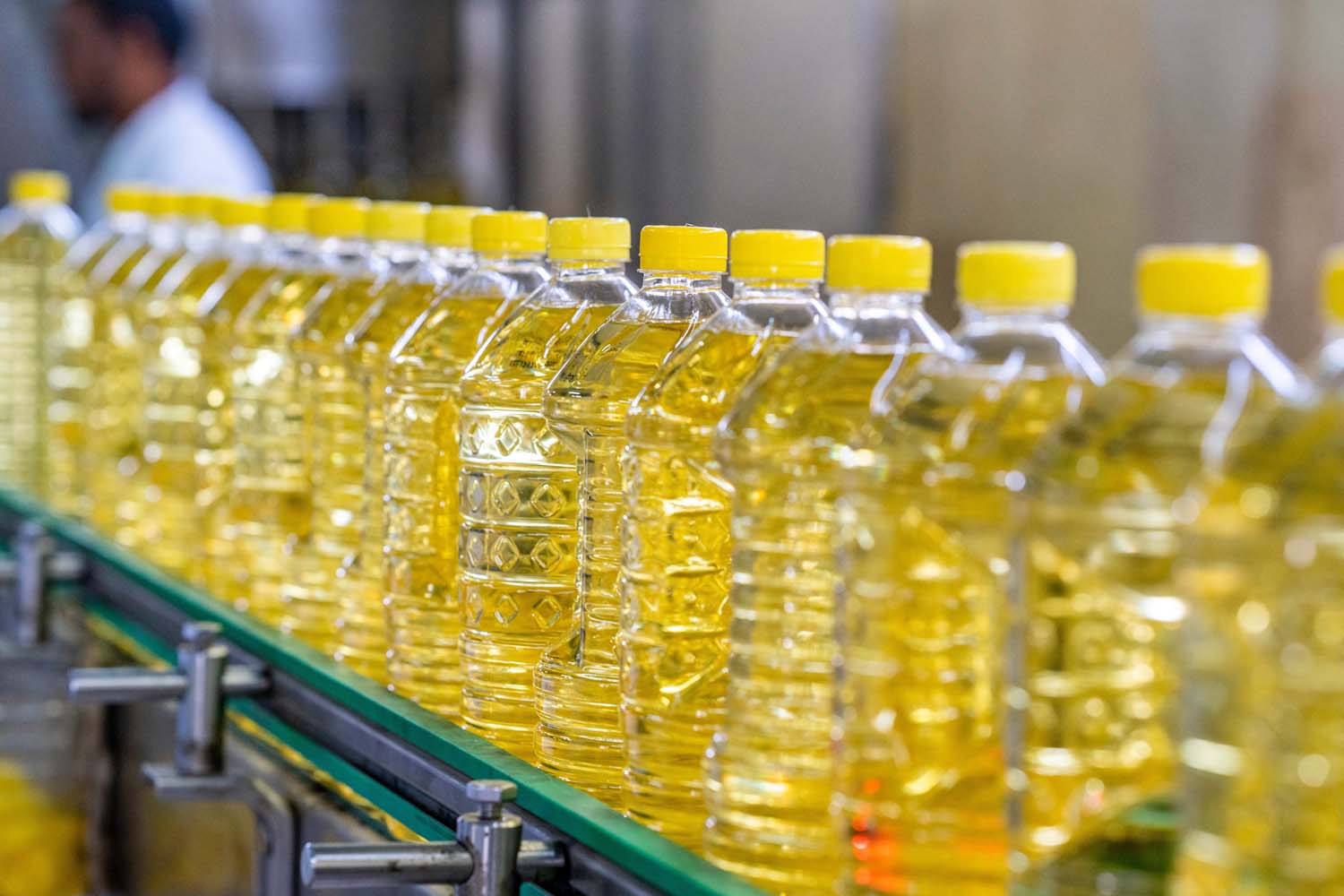Kathmandu, May 24 – Exports from Nepal witnessed a significant rise of 72.71 percent during the initial ten-month period of the present fiscal year, which concluded midway through May. The substantial growth can largely be attributed to the re-exportation of various edible oils—most notably soybean, sunflower, and palm oil—which are products that Nepal lacks enough production capacity to satisfy local consumption needs adequately.
Out of the total, exports of edible oils to India were valued at Rs 90 billion.
As reported by the Department of Customs, Nepal’s exports amounted to Rs 217.91 billion over the reviewed timeframe, marking a significant increase compared to the Rs 126.17 billion documented for the corresponding duration in the previous financial year.
Excluding edible oil exports, total exports come down to only Rs127.89 billion, highlighting how significantly edible oils influence the country’s trade statistics.
The export of soybean oil saw a 90-fold increase compared to the previous fiscal year.
Over a span of ten months, Nepal exported 374,086 tons of soybean oil, which was valued at Rs78.75 billion. The import figures were quite similar; during this time, Nepal imported 539,549 tons of crude soybean oil amounting to Rs81.89 billion. These imports mainly came from countries such as Argentina, Brazil, China, Iraq, Thailand, and Ukraine, with minor contributions from Benin, Paraguay, and Togo.
Likewise, sunflower oil exports increased 62 times during the same period. The nation exported 457,760 tons of sunflower oil valued at Rs10 billion. In terms of imports, Nepal imported 166,527 tons of crude sunflower oil worth Rs24.64 billion, primarily from Argentina and Ukraine, with Romania following closely behind.
In addition, Nepal exported 6,685 tonnes of palm oil, which was valued at Rs1.16 billion, and imported 32,318 tonnes of crude palm oil worth Rs4.60 billion, mainly from Indonesia and Thailand, with Malaysia also being a supplier.
Apart from edible oils, Nepal’s main exports over this period comprised carpets, large cardamom, rolled iron and steel, various textiles like jute products, juices, felts, teas, dog chews, plywoods, and oil cakes.
The sharp increase in exported refined soybean oil to India has raised alarms for local Indian oil manufacturers, who contend that this trade practice breaches the South Asian Free Trade Area (SAFTA) accord. According to provisions within both SAFTA and the India-Nepal Trade Treaty, goods from Nepal can enter India without any duties imposed.
On the contrary, nations outside of South Asia face a substantial 45 percent tariff when exporting soybean oil to India. This considerable difference in tariffs has prompted traders to redirect their shipments via Nepal, taking advantage of the country’s duty-free entry into the Indian market.
This approach has enabled Nepalese merchants to benefit from this gap in regulations; however, specialists and government officials debate whether these trading tactics can remain sustainable and lawful over time.
Last September, India increased the base import duty on crude and refined edible oils by 20% to aid local farmers dealing with declining oilseed prices. Following this change, exports of soybean oil from Nepal to India saw a significant surge.
In February, the Solvent Extractors’ Association of India (SEA) appealed to the Indian government to impose restrictions on edible oil imports from Nepal and other South Asian Cooperation Region (SAARC) countries. The SEA claimed that such imports circumvent origin laws, contravene trade regulations, and adversely impact Indian processors, farmers, and governmental tax incomes.
In response to increasing worries, the Indian Ministry of Finance revised the Customs Rules for Administering Rules of Origin under the Trade Agreement of 2020 in March. This change substituted a stricter Proof of Origin requirement for the previous Certificate of Origin to enhance oversight of trading activities.
Experts in trade have voiced concerns regarding the degree of value addition in these export products.
As they point out, the value addition often falls below 15 percent, which is considerably less than the 30 percent mandated by Nepal’s trade rules for products aiming for duty-free export status to India.
Rabi Shankar Sainju, an expert in international trade, recently shared with the Post that traders frequently bring in refined liquid soybean oil from abroad, repackaging it into smaller quantities for subsequent export to India. This activity typically entails limited involvement of local labor and depends on doctored paperwork.
Sainju criticized the government for remaining quiet about this matter, highlighting that these practices unjustly increase Nepal’s export figures without promoting genuine industrial investments or enhancing national income.
Paras Kharel, who serves as the executive director of South Asia Watch on Trade, Economic, and Environmental Issues, provided a detailed perspective. He pointed out that Nepal is importing raw soybean and sunflower oils and subsequently exporting their processed forms to India, which aligns with the provisions set forth under SAFTA regulations.
According to those regulations, goods have to satisfy two criteria: at least 30 percent value added and a modification in the six-digit Harmonized System code. Should Nepalese merchants fulfill these stipulations, their trade will be considered lawful.
Kharel also stated that should the regulations be compromised, both the Nepalese and Indian administrations ought to initiate inquiries and implement necessary corrections. He pointed out that since India keeps accepting Nepal’s Certificates of Origin, the present trading procedures might not yet overstep legal limits.
From this viewpoint, trading in edible oils might not necessarily be considered illicit or in breach of SAFTA regulations.
Nonetheless, the long-term viability and economic benefits of this commerce are still uncertain. With both nations under pressure to reconcile their internal priorities with their regional trading commitments, trade specialists argue that the surge in edible oil exchanges between Nepal and India requires closer examination and clearer policies.


Leave a Reply